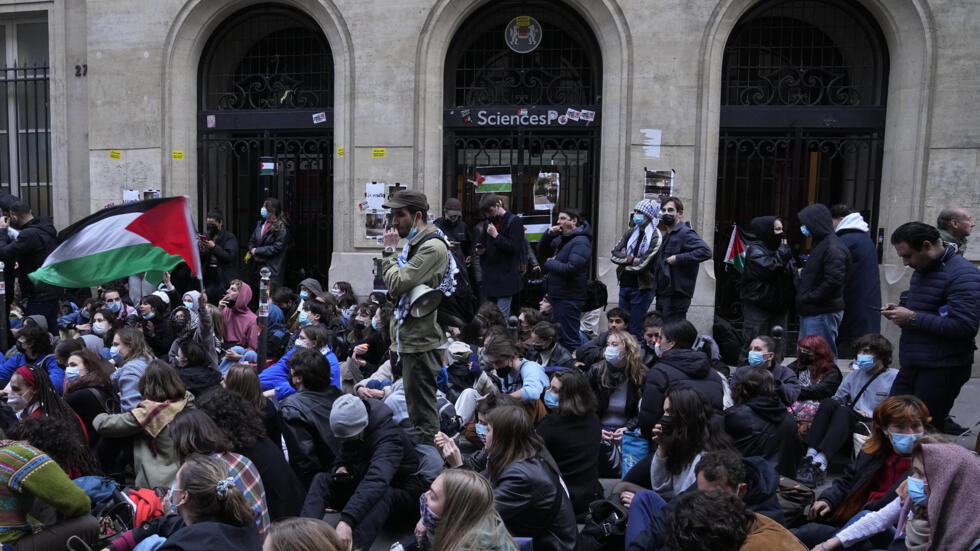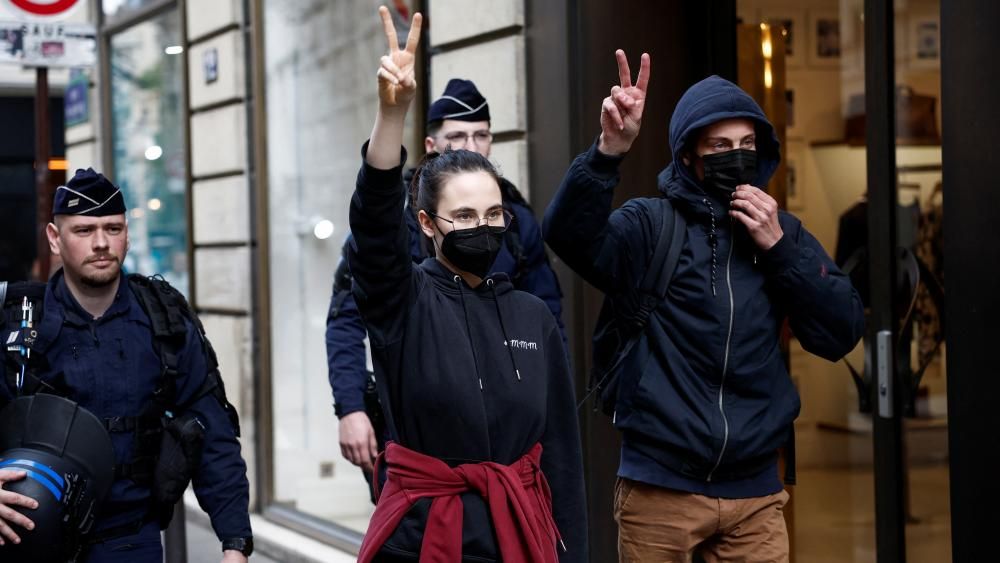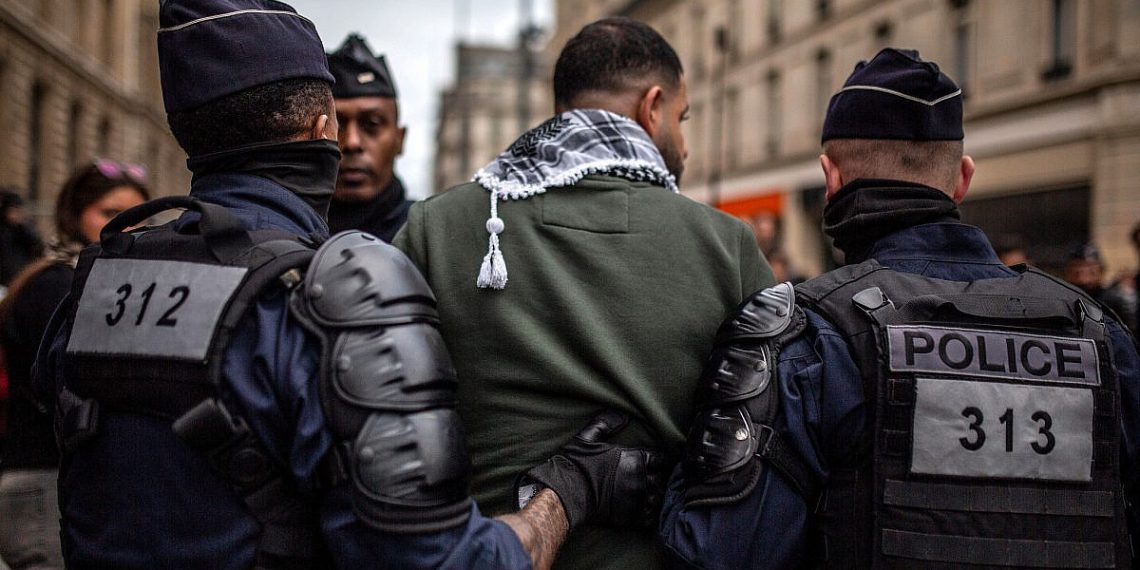French police disbanded a pro-Palestinian protest at Sciences Po University in Paris, contrasting with more turbulent demonstrations in the United States.
Unlike the confrontations across the Atlantic, the French protests remained peaceful as authorities removed around 70 activists from the premises without violence.
Prime Minister Gabriel Attal’s office disclosed the evacuation of student protesters from 23 educational institutions nationwide, emphasizing the absence of permanent protest camps seen in the U.S.

Despite the widespread unrest, French demonstrations have maintained a smaller scale, focusing on Sciences Po as a hub for dissent against academic ties with Israel and condemnation of its actions in Gaza.
Clement Petitjean, an American studies professor at Sorbonne University, highlighted widespread frustration over institutional silence regarding the Gaza conflict, igniting student anger. Sciences Po Director Jean Basseres’ refusal to reassess relations with Israeli universities further fueled protests.
Jack, a Sciences Po student, recounted participating in the overnight occupation of the university’s main building in Paris, rejecting officials’ demands to vacate certain areas.
The protests extended beyond Paris, with Sciences Po satellite campuses in Reims, Le Havre, and Poitiers also affected, along with Sciences Po Lyon and the Lille school of journalism.

Compared to the U.S., Petitjean attributed the smaller scale of French protests to lesser economic ties with Israel and subdued support from academic staff.
Despite this, the sentiments of anger and dissatisfaction persist among French students, fueled by the ongoing conflict in Gaza and perceived institutional inaction.
The events at Sciences Po underscore a growing discontent among French students, shedding light on the complexities of international academic relations amidst global conflicts.





